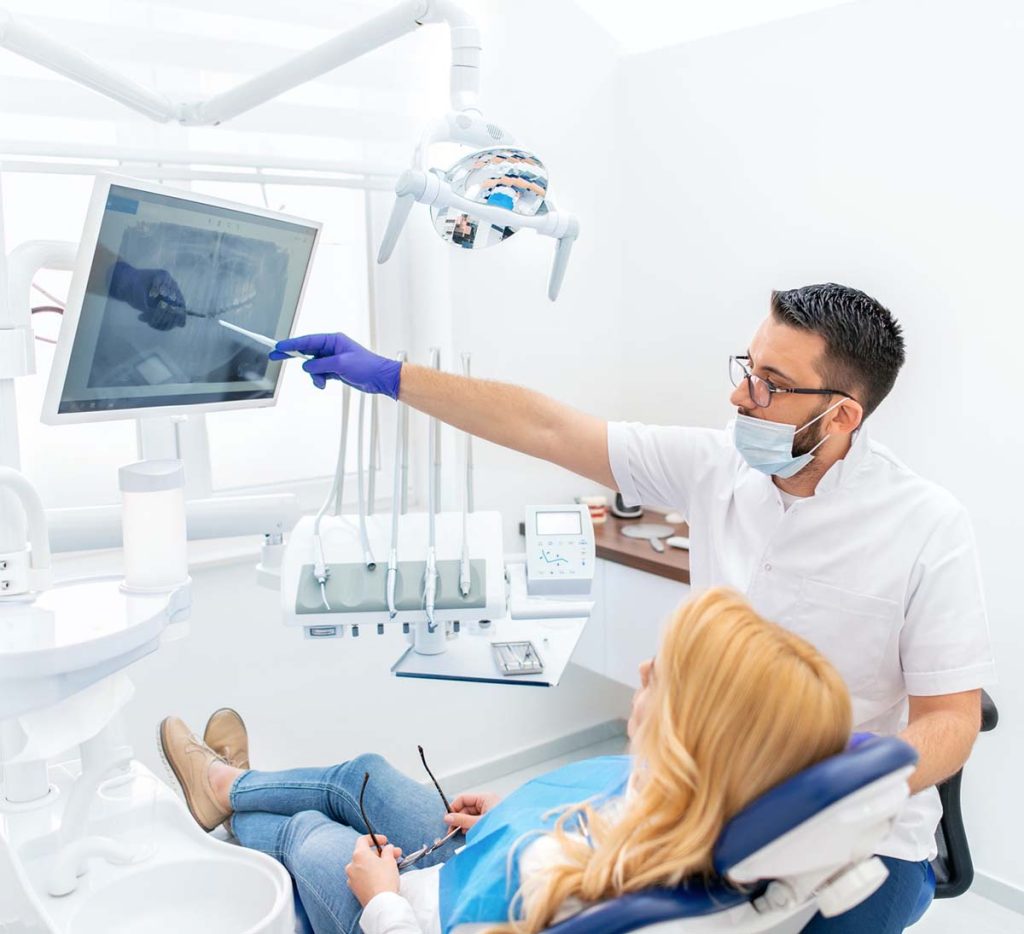Many patients are surprised to learn they have a cavity, especially when there’s no accompanying toothache.
When it comes to dental health, cavities are often considered the arch-nemesis, lurking in the shadows of our pearly whites. Typically, the first sign of a cavity is a sharp pain, signaling the need to visit the dentist. However, not all cavities come with this dramatic warning. Many people are surprised to learn they have a cavity, especially when there’s no accompanying toothache.

Understanding Cavities When You Have No Pain
If your dentist has told you you have a cavity but aren’t experiencing any pain, here are some of the common reasons:
- Tooth Enamel’s Limited Nerve Supply: The outer layer of our teeth, known as enamel, is a tough and protective shield. Unlike the more sensitive inner layers, enamel has minimal nerve endings. As a result, when a cavity begins to form on the tooth’s surface, it may not trigger pain because the nerve-rich pulp inside the tooth remains unaffected.
- Slow Progression of Decay: Cavities don’t develop overnight. They are the result of a gradual process of demineralization and decay. The progression may be slow initially, giving the tooth time to adapt to the changes without causing discomfort. It’s only when the decay reaches deeper layers or approaches the nerve that pain becomes evident.
- Nerve Response Variability: Each person’s pain threshold and sensitivity to dental issues can vary. Some individuals may be more prone to discomfort at the slightest hint of decay, while others may have a higher tolerance and experience little to no pain until the cavity reaches an advanced stage.
Why Regular Checkups are Important
While pain may not be a reliable indicator of early-stage cavities, regular dental checkups are. Dentists can detect signs of decay through visual examination and diagnostic tools like X-rays, allowing for intervention before the cavity progresses to a painful stage.
Understanding the factors contributing to painless cavities emphasizes the importance of preventive care. Good oral hygiene, including regular brushing, flossing, and professional cleanings, can help ward off cavities before they become problematic.
Protect Your Teeth – Preserve Your Smile
The absence of pain in the presence of a cavity may seem perplexing, but it underscores the need for proactive dental care. Regular check-ups and a commitment to oral hygiene are critical to maintaining a healthy smile. You can prevent silent intruders from jeopardizing your oral health by staying informed and attentive to the subtle signs of dental issues. Remember, a painless cavity is not a cause for complacency – it’s a call to action to protect your teeth and preserve your radiant smile.
